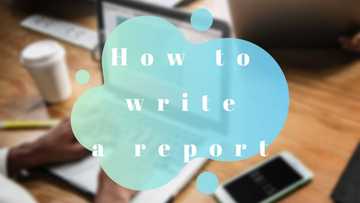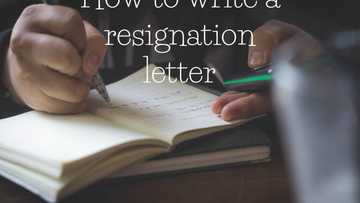How to write a book review: useful tips and samples
A book review is a critical analysis and evaluation of a work written in a scientific, literary, or journalistic style to form an opinion about it among the target audience. Do you want to know how to write a book review as exciting and informative as possible? Just follow a few simple rules.

Source: UGC
To evaluate someone's work, a reviewer has to observe objectivity and be able to present the author`s thoughts in an accessible and competent way. To do this, you need to have a sufficient level of competence and erudition.
How to write a book review
Writing a book review can be an interesting exercise for those who love to read books and can express their thoughts on paper well. After all, it is one of the ways to share impressions about a published work with like-minded people, to present your perception of the plot and characters.
You can follow this plan when reviewing:
- Introductory part
- Main idea
- Critical analysis
- Conclusion

Source: UGC
This simple plan will help you to write a really interesting and memorable piece.
How to start
For many, the biggest difficulty lies is writing the beginning of the review. There are no clear rules. However, you should remember that usually, the introduction gives tone to the whole review. Here are some options you should begin with:
- A brief description of the plot
- Disclosure of the genre
- Intriguing quote from the book
- Personal evaluation (was this work interesting to you or not?)
The main idea
In this part, you should identify the range of problems and the main idea. You should not retell the whole plot. The significance of the review is given by the reviewer's ability to correctly assess how an author was able to portray characters and convey the main idea of the work.
READ ALSO: How to write a term paper: a short guide
Critical analysis
First of all, you should pay attention to the title of the book you are reviewing. Does it express the main idea? In this part, you can also assess how time and space are correlated with the topic of the book and what feelings they create when reading it. It is also important to analyse the model of the behaviour of main characters: how their thoughts and feelings change, what problems they face, and what their difference is from minor characters.
Conclusion
In the final part, a reviewer evaluates the importance of the book, and shares his or her personal impression of its plot, compares it with other works of the author, and assesses the realisation of the main idea.

Source: UGC
Readers wait for two simple things from this kind of write-up, namely information about content and its evaluation. Therefore, when you write it, do not forget to follow this simple structure.
What points should be analysed?
They include:
- Plot consistency, narrative dynamics
- Characters, elaboration and accuracy
- Feelings caused by heroes
- Author's style and language
- Compliance with the details of reality
- Behaviour of the main characters, their reaction to events
- Originality of the work
- Ethics and uniqueness of the main idea
- Presence of mistakes
- Relevance
- Your feelings

Source: UGC
It is not necessary to analyse all the details. You can choose the ones you want to talk about. When describing your feelings, you can clarify what thoughts and emotions the book caused, whether you wanted to leave it in your home library and reread in the future.
Useful tips on how to write a good book review
Expressing their thoughts in an interesting way about what was read, a reviewer forms the reader's interest in the paper or, conversely, discourages the desire to read the book.
Here are some pieces of advice on how to write a good review:
- Before writing, it is advisable not to read other people's reviews. Their thoughts may confuse or influence you, and you will face difficulties in expressing your opinion. When writing a review, the impressions of a particular person are important, taking into account his or her experience and attitude.
- The opinion of a reviewer can be different from a generally accepted one. For example, a book is considered to be generally accepted as a masterpiece, and a reviewer did not like certain moments that spoiled the overall impression of the book. Do not worry if your opinion is contrary to the majority.
- It is necessary to observe the principle: the more negative the impression of a book is, the more it should contain explanations. That is, you should analyse the work in more detail and explain what specifically you did not like.

Source: UGC
You should also check out the most common mistakes when writing this kind of review:
- The most common mistake is a detailed retelling of events occurring in a book
- Getting too personal
- Rudeness, familiarity
- The usage of subjective value judgments (good/bad, talented/incompetent)

Source: UGC
Book review examples
It is time to consider the best examples of such a review:
- Useful samples at academichelp.net
- Check examples at lonestar.edu
Now you know how to write a book review. This guide will help you to develop both your writing abilities and improve your reading skills. When you write such content, you are forced to read a book more deeply and pay attention to details, which is a good thing.
READ ALSO: How to write a proposal letter (with examples)
Source: Legit.ng






